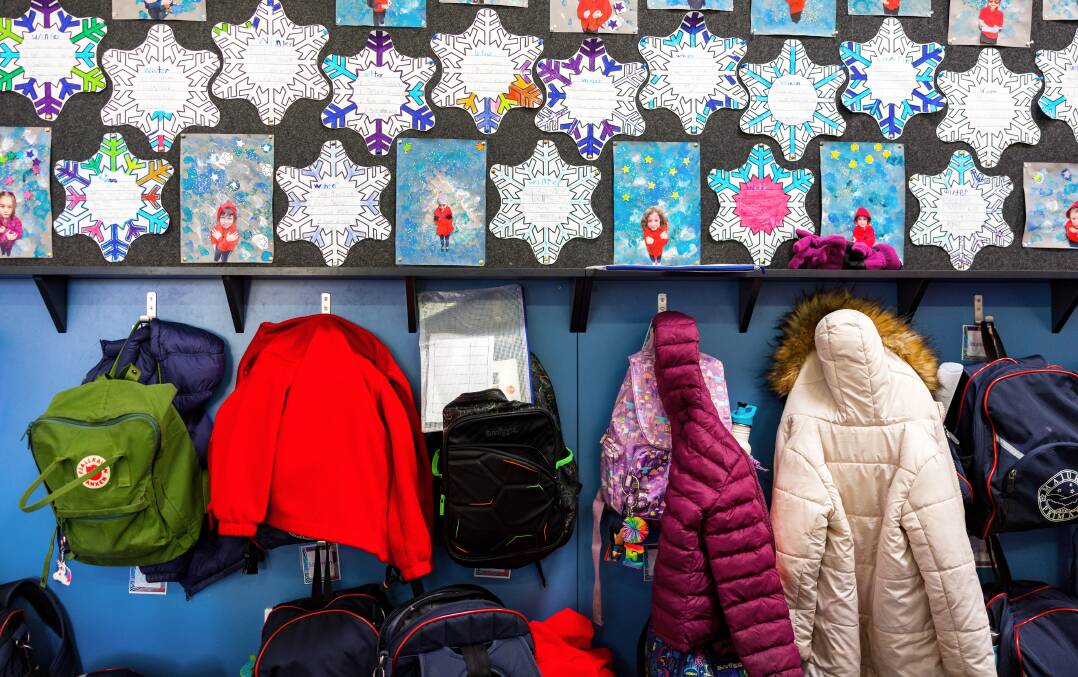Disadvantaged students fell further behind their peers in reading and numeracy, the ACT Education Directorate annual report reveals.
The directorate set a target to narrow the equity gap in NAPLAN reading scores to 48 in 2022, but the actual gap was 58.
The blowout was even worse in numeracy, where the target equity gap was 38 but the actual gap was 52.
The measure compares the most advantaged students whose parents have a university degree or higher with students whose parents did not attend university.
The directorate has blamed the missed targets on the COVID-19 pandemic which had a greater impact on students in the early years.
"The response of our schools has been to increase efforts to personalise learning to meet the needs of these students," the 2022-23 annual report said.
"This system level outcome requires a system level response, and the Directorate has been putting procedures in place to support teachers to provide the right supports to students who are performing at all levels in their classrooms."
The other main way the directorate measures students' learning is the amount of learning gained between year 3 and year 5 and between years 7 and 9.
However this data was unavailable this year because the 2020 NAPLAN test was cancelled due to the pandemic. The learning gain will not be able to be calculated again until 2025 because of a change to the testing regime in 2023.
NAPLAN results from 2023 showed about a third of ACT students were below the level expected in reading and numeracy at the time of testing.
Attendance falls, Indigenous targets not met
Attendance levels for public school students in years 1 to 10 dropped in semester 1, 2022 to 85 per cent, down from 91 per cent in 2021.
The drop in attendance rate was consistent with other parts of Australia, which has been attributed to COVID-19, influenza and floods in some regions.
The ACT did not meet its target of 92 per cent of year 10 Aboriginal and Torres Strait Islander students continuing to a public college.
Out of 133 Indigenous students in year 10 in 2022, 105 (79 per cent) continued to college in 2023.
Only 64 per cent of Indigenous year 12 student in 2022 graduated with an ACT senior secondary certificate.
Greater support for schools
Principals and teachers will be getting better access to data through a leadership dashboard and training on data literacy to inform their work, the report said.
Professional learning communities, where teachers and school leaders work together to improve their knowledge and practice, was the key mechanism to lift student performance.
The directorate gave advice to 11 public school principals to help them develop school pedagogical frameworks and two schools were supported to improve their use of high-impact teaching strategies.
The directorate's policy on reading instruction has come under fire from parent advocates this year who have called for a consistent approach based on the science of reading.
The directorate continued to use the "10 essential instructional practices in literacy" and "finding the balance" strategies to teach literacy and numeracy respectively in primary schools.
Eighty-four per cent of primary schools have literacy champions to lead the initiative and 36 schools have instructional mentors to implement the strategy.
Nineteen new educators attended training on the essential instructional practices.

We've made it a whole lot easier for you to have your say. Our new comment platform requires only one log-in to access articles and to join the discussion on The Canberra Times website. Find out how to register so you can enjoy civil, friendly and engaging discussions. See our moderation policy here.







